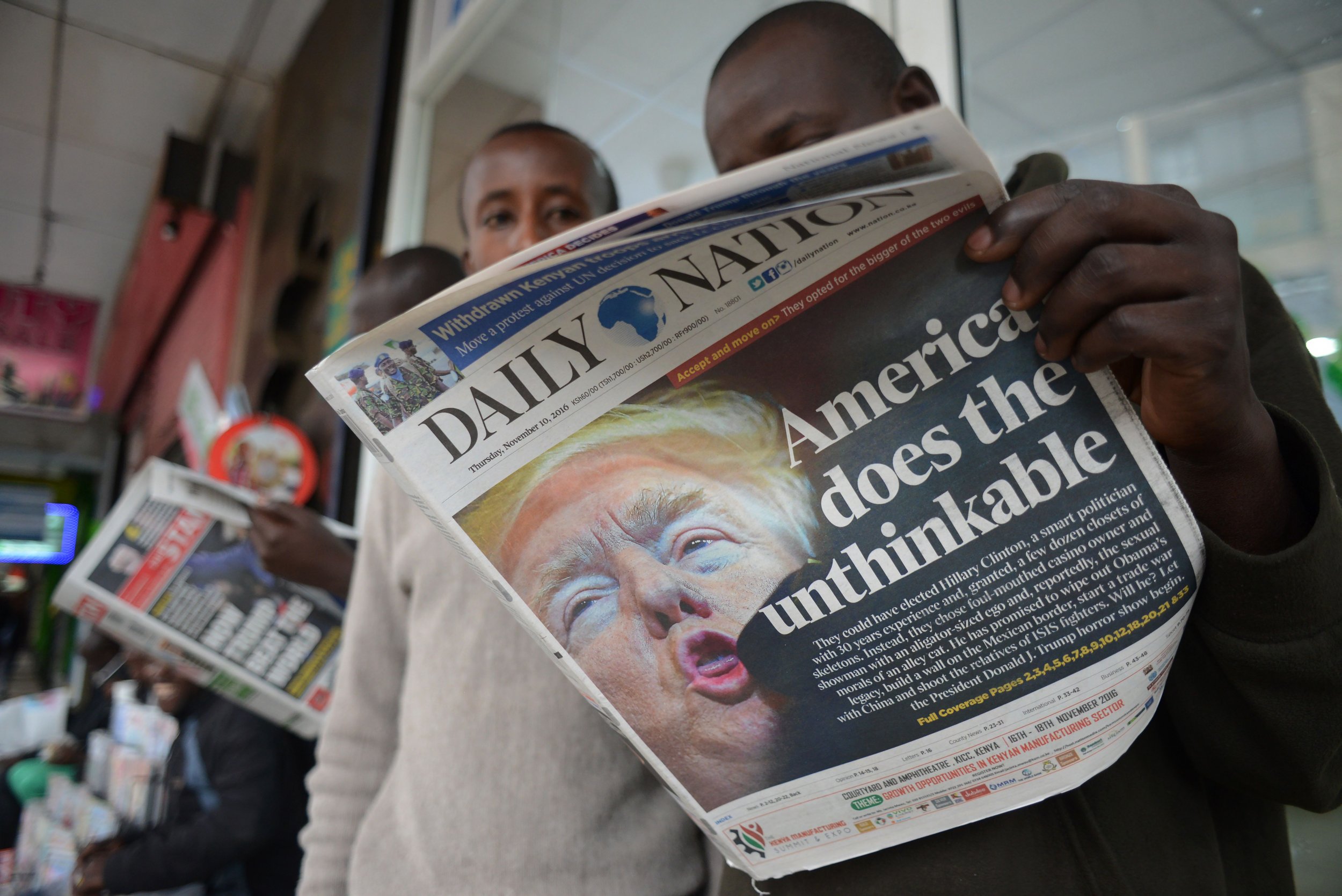
This article was originally published by the Council on Foreign Relations.
Media indicates that sub-Saharan African opinion is as astonished as everybody else at Donald Trump's presidential victory. As appears to be true in much of the rest of the world, African opinion makers do not welcome it. The New York Times cites a Nigerian political science professor as saying that most Nigerians believe that a Trump administration will focus little on international issues. It also quotes Kenyan columnist Macharia Gaitho as saying, "If Trump wins, God forbid, then we will have to reassess our relations with the United States." These views accord with what I am hearing.
Africa featured not at all in the presidential campaign except with slight reference to jihadi radicalism—and even that was centered on Libya, not part of sub-Saharan Africa. U.S. trade ties mostly involve importing African primary products, especially petroleum and minerals, and limited investment in "frontier" markets. There is a concessionary trade agreement between the United States and Africa, the African Growth and Opportunity Act (AGOA), but it was recently renewed and has little consequence for the U.S. economy. The U.S. does have assistance programs in Africa, notably in health and girl-child education. And the President's Emergency Plan for AIDS Relief (PEPFAR) is an important legacy of the previous Republican president, George W. Bush. There is also a security relationship with a few African countries, notably Kenya and Djibouti, but they are small.
Over the long term, Africa is of immense importance to U.S. interests with respect to climate change, disease and a host of potential security issues. Africa is prominent in international organizations such as the UN General Assembly or the World Trade Organization where each country has one vote. And, of course, Africa is central to the broad U.S. agenda of promoting democracy, human rights and the rule of law. But, these are long term, not short term issues, and candidate Trump has shown little interest in them. Hence, Africa is unlikely to be near the top of the Trump administration's policy agenda.
International relations are shaped by people as well as policies. Under President Barack Obama, about 70 percent of ambassadors were career diplomats, and in Africa all were, with two exceptions: South Africa and Tanzania. Similarly, the Assistant Secretary of State for Africa is a career foreign service officer. All ambassadors submit a letter of resignation on inauguration day; past practice is that those from career officers are not accepted. Some from "political appointees" may be, and most are when there is a change in party. A president can appoint anyone he likes as an ambassador, so long as the proposed appointee is an American citizen, can survive the security clearance process and wins Senate confirmation.
So, should he choose to do so, President Trump could change wholesale the personnel that shape and conduct U.S. policy toward Africa. This, however, is unlikely, given that a new administration will have a very full plate. At least for a year or two, the Africa policy of the new administration is likely to be characterized by continuity. But, then the election results along with Brexit show the limitations of prediction. It also remains to be seen how Africa's leadership will respond to a Trump administration.
John Campbell is the Ralph Bunche Senior Fellow for Africa Policy Studies at the Council on Foreign Relations (CFR) in New York.
Uncommon Knowledge
Newsweek is committed to challenging conventional wisdom and finding connections in the search for common ground.
Newsweek is committed to challenging conventional wisdom and finding connections in the search for common ground.
About the writer
To read how Newsweek uses AI as a newsroom tool, Click here.








